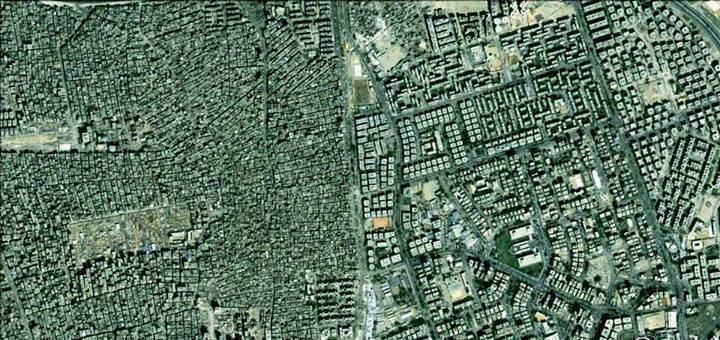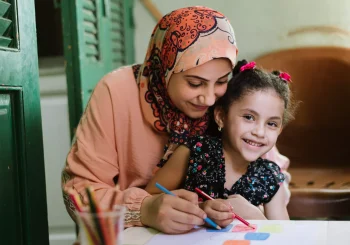When taking a closer look at the Egyptian society today it seems that the process of climbing the social ladder became as hard as ever. If we examine Egypt’s recent history, especially in the beginning of the 20th century until the 70’s, one could observe many examples of successful Egyptians who came from poorer backgrounds and managed to breakout the cycle of hardship.
Taha Hussein, the blind prominent Egyptian novelist, was born and raised in Minia in Upper Egypt and lived under tough circumstances of poverty and deprivation. Despite those hard conditions, the Egyptian society could give Taha an opportunity to escape destitution for good through education. He continued his education in Cairo at Al-Azhar then moved to Cairo University. After Hussein obtained his MA from the University of Montpellier, he continued his studies and received another PhD at the Sorbonne. One expects that his children and grandchildren are most probably well-off today and for good.
Taha Hussein is just one example from the Egyptian history where underprivileged people could infiltrate higher socio-economic classes. Abbas el Akkad, Anis Mansour, Mohamed Hassanein Heikal, Naguib Mahfouz, Gamal Abd El Nasser, Farouk El Baz and many others have similar stories like Taha Hussein (ask your grandparents if they are still alive). It is noteworthy to mention that Egypt back then was also a poor nation with visible inequalities. Yet, the society did not systematically block the opportunity for the masses to improve their livelihoods.
Unfortunately, the picture in today’s Egypt looks different. It seems like there is a regular and orderly obstruction to the underprivileged masses to gain access to opportunities. In the education sector, for instance, quality international schools that teach foreign languages and provide the necessary skills for a modern labor market are exclusive to the minority of wealthy Egyptians. The graduates of such schools can also afford to pursue their higher education at respected institutions within Egypt and abroad. Consequently, this results in those children earning higher incomes in the future. The story is no different in the health sector. Decent hospitals are privatized and charge substantial amounts of money, which the majority of Egyptians cannot meet the expense of.
Additionally, due to superior education, richer parents tend to ensure good nutrition and better access to health care to their children, which is not always the case for less privileged Egyptians (Vaccinations ….etc). Poorer classes in Egypt, particularly in urban regions, live in polluted and condensed areas with limited access to basic public services such as clean water, which further exacerbates their health situation.
A major study by the London School of Economics (Intergenerational Equity: Understanding the linkages between parents and Children a Systematic review) about the inter-generational transmission of multi-dimensional poverty confirms my claims. The study concludes that there are substantial degrees of income, education and health persistency across generations, which seems to be greater in developing countries. There is substantial evidence, according to the study, to believe that children from disadvantaged backgrounds (low-income and low-educated families) face limited education and health opportunities that will handicap them in the long term. Furthermore, early childhood experiences are increasingly seen as precursors of later life outcomes. There is strong causal effect of parental education on children’s schooling and educational achievement. Mother’s education in particular seems to be a stronger determinant of her children’s education as the study affirms.
Many academic studies corroborate that the outcomes that children acquire over their early childhood determine to a large extent the opportunities to realize their economic potential in the future. Human capital endowments play a big role in shaping the opportunities that face children in their future. Factors that affect future income through the development of cognitive and non-cognitive skills as well as schooling play an imperative role in the inter-generational transmission of poverty or wealth. Children exposed to poverty early in life (even before they are born) have disproportionally high probability of being malnourished at birth, suffering ill-health and completing less schooling, which in turn will result in lower income levels later.
This is supported by Jeff Madrick, a prominent economic policy consultant and analyst, who states that “children who grow up poor face greater obstacles to social development and good health, obstacles that often remain with them the rest of their lives. They are more likely to have chronic diseases like asthma or attention deficit disorder, few of them graduate from high school, their wages are lower, and they often end up on welfare. Poor teenage women have more unwanted births”. He also draws our attention that there is extensive evidence today, which reveals that high stress environment for young children could have negative repercussions on the architecture of the brain, changing the actual neurological functioning and quantity of brain matter.
Should a young child, whose brain is still forming, be bombarded by constant stress—from violence at home, lack of food, parental drug abuse, and, not least, chronic lack of attention or nurturing—the overloaded mechanism fails and the brain is adversely affected especially the parts of the brain that directly affect learning, memory and emotional control. Undoubtedly, this has unfavorable effects on those children’s ability to economically succeed in the future and become an active and healthy member of the society.
Poor parents in Egypt and elsewhere in the developing world face some sort of a vicious cycle that results in the inter-generational transmission of poverty. They face a credit constraint as they find it very difficult to borrow from banks as they do not possess sufficient collateral. Accordingly, they fail to invest in their children’s’ future via allocating funds to their education and health, which reflects in lower future earnings.
Nevertheless, the effect of income could be analyzed in a different manner. Interpreting the effect of income is especially difficult when you look across generations, because the income will largely be determined by the skill and wage level of the adult, which is an effect of education. This is why human capital is a major mechanism in the intergenerational transmission of income. In other words, income acts as a middleman in access to both education and health.
The LSE study also suggests that income as a transmission mechanism can also reinforce other mechanisms. For instance, “as a result of low income or credit constraints, poorer households have to distribute their funds more thinly across the household, resulting in the reinforcement of other transmission mechanisms. These include maternal stress, birth order, gender biases, and parental perceptions of children’s future prospects”.
Today Egypt is in desperate need to address the main concern of the society that is achieving considerable improvements in the realm of social justice. I believe that declaring war on transmission of inter-generational poverty would be a gateway as to bring an end to the constant reproduction of hardship. Below are some ideas Egyptian policymakers could take on board in their fight against inter-generational poverty at least in the short-run, if it is a priority for them at all:
- Direct governmental intervention in the most impoverished areas in Egypt through conditional cash transfers to the poorest families with young children [cash transfers shall be subject to a weekly visit to the local GP, or regular school attendance….etc]. This sort of incentive is necessary as to lift some credit constraints and allow parents to invest in areas other than subsistence. – Medical and science professionals now virtually all agree that the earlier a positive intervention is made in a child’s life—including home visitations by professionals, parent counseling, treatment for substance abuse, and relatively new programs, such as reading to toddlers even before they have language skills—the better. American Pediatricians, for instance, are developing plans to use pediatric visits as a platform for more extensive intervention when undue stress is evident. One favorite program is a free book with every shot.
- Direct and well-targeted training and provision of employment to the poorest families. This would also reduce the cash constraint, lift their self-esteem and may also reduce child labor. Egypt needs to enhance its ailing infrastructure (schools, hospitals..etc especially in upper Egypt), hence public works could provide a successful tool for employment for those people. Employment in public works could also be subject to specific developmental criteria such as schooling, visiting the local GP..etc.
- Undoubtedly, heavy investments in schooling quality will always remain a pressing need in order to enhance social mobility. Many NGOs in Egypt work in the field of education and provide successful examples of modern education and children empowerment in underprivileged slums. The government may well coordinate with those as to enhance the low quality of Egyptian public education.
- Provision of alluring incentives for both local and foreign investments in labor-intensive projects outside Cairo and Alexandria. The more underprivileged the area is, the greater the incentive to invest. This would absorb many unemployed rural citizens and stop the influx of citizens to Cairo and Alexandria seeking disguised employment and again lift the credit constraint poor families usually face and obstruct them from achieving developmental goals for their children.
- A University of Manchester study revealed recently that poor people in Egypt suffer from a ‘capability deficit’ in two main areas: job creation and education. If therefore the Egyptian government were to design a policy to ‘help the poor fulfill their aspirations’, it would need to provide poor people with adequate employment opportunities and good education. The analysis demonstrates two dynamics of aspirational failure: a downward spiral and an intergenerational transmission. The former happens when one aspiration failure leads to another, while the latter reflects the failure of many parents in poor communities to fulfil the aspirations of their children, thus ending up transmitting their failed aspirations to the next generation.
People may wonder how can Egypt finance such programs. The answer can be found in how Egypt invested 60 billion pounds to dig the new Suez Canal.








Comments (7)
You cannot use the same answer for both. The Suez Canal is a major mega project that will bring revenue to both the country and the investors. While building new homes for the poor wont do much as the poor won’t be able to pay for it, investors won’t get a return (if they even invest) and the goverment will lose billions. If only it was that easy, unfortunately, its not.
With mega-projects, there is too much chance for corruption and not enough trickling of benefits to those who need them most. It would be better to invest in smaller-scale projects aimed at improving education or stimulating jobs and production. And that does not mean simply building houses for the poor.
The article does not mention anything about building homes for the poor. What i meant by the last sentence is that the money is available, it is just a question of how to minimise the money waste in the Egyptian budget in order to achieve certain social goals, which will also have a positive long-term impact on the economy (less deprived people, more equipped labor force…etc).
Thank you for your feedback
Good conclusion. Now to find the political will